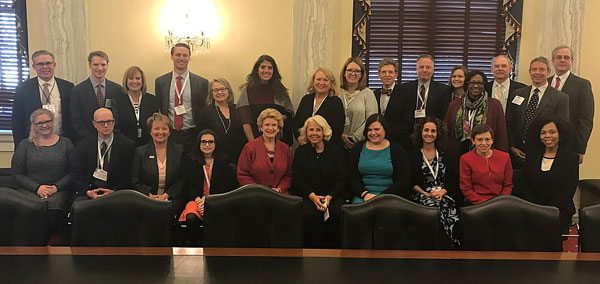
March 18, 2018; MiBiz.com
Increasingly, institutional funders and their grantees are expanding and venturing into partnerships with government and for-profit businesses to focus on economic development. Michigan has been a central example, as the latest issue of MiBiz, a local business publication in Michigan, explains.
Jeff Williams of Lansing-based Public Sector Consultants told MiBiz that “community foundations increasingly are serving as the kick-starters for economic development projects that no one entity wants to be the first to commit to because of the potential for failure.”
“In this new era of cynicism, a lot of community foundations are seen as neutral or trusted parties. If a community foundation says they’re going to put matching money up, suddenly developers, governmental units, and others will join in,” he said.
The article goes on to cite a number of Michigan examples. One is the New Economy Initiative (NEI), a project of the Community Foundation for Southeast Michigan, which was created in 2007 with $100 million in initial contributions from 10 foundations, including Ford, Kellogg, and Charles Stewart Mott, in response to the loss of 367,000 manufacturing jobs in the state in the first decade of the 2000s. It is now one of the largest philanthropy-led economic development initiatives in the US as it strives to grow a culture of entrepreneurship in the region. The pool of funds has grown to $160 million and embraces a range of educational, government, and community-based service organizations that direct their efforts toward low-income communities.
Sign up for our free newsletters
Subscribe to NPQ's newsletters to have our top stories delivered directly to your inbox.
By signing up, you agree to our privacy policy and terms of use, and to receive messages from NPQ and our partners.
The effort has had some important successes, although as NPQ’s Sean Watterson noted this past January, it still faces many challenges. NEI has also not been immune to the enthusiasms of the day, most recently the scrum for Amazon’s second headquarters, a competition for which Detroit may find that it was lucky to “lose.”
Initiatives like NEI have also raised concerns among some philanthropists and critics about taking responsibility for programs and services that government used to provide. From their perspective, taking on this work marks a shift in power from democratically elected governments to private entities. In 2013, as foundations were beginning to step in to address Detroit’s declaration of bankruptcy, NPQ’s Rick Cohen articulated some of these concerns:
The solution to Detroit’s problems is going to be in the revitalization of its communities, perhaps following the Futures plan that Kresge and others worked on for so many years. That requires thinking about social inequities and racial inequities. The path out of this morass for the Motor City is not going to be simply charted on a spreadsheet, but designed by the engagement and mobilization of those community residents who have stuck it out and committed to revitalizing neighborhoods like Boston-Edison, Bagley, and some in Midtown and Southwest.
For its part, MiBiz seems to be asking the wrong question. The proposition of foundations permanently replacing government is preposterous, and fortunately the foundations interviewed concur. But the broader and more important question of how philanthropy might empower Detroit residents and residents of color in other Michigan cities to reclaim democratic authority is left on the table. Here, it is worth recalling the prevalence of emergency manager government in the state, which in the past few years has affected not just Detroit, but Flint, Pontiac, Benton Harbor, and Saginaw with, at best, mixed outcomes. In Flint, the contamination of the city’s water system was the result of an emergency manager’s horrifyingly bad decision to economize on water costs.
This is not, by the way, to deny that philanthropy in Michigan has often played a vital role. “What we’re starting to see is job creation in communities that were struggling. We’re starting to see women and people of color getting grant assistance to start and grow businesses,” NEI Director Pamela Lewis told the publication. The challenge going forward, however, is to deepen these positive trends—to, as Cohen put it, “include and benefit, rather than exclude and impoverish, Detroit’s remaining 700,000 residents”—as well as other low-income Michiganders of color in other Michigan urban centers.—Larry Kaplan and Steve Dubb











